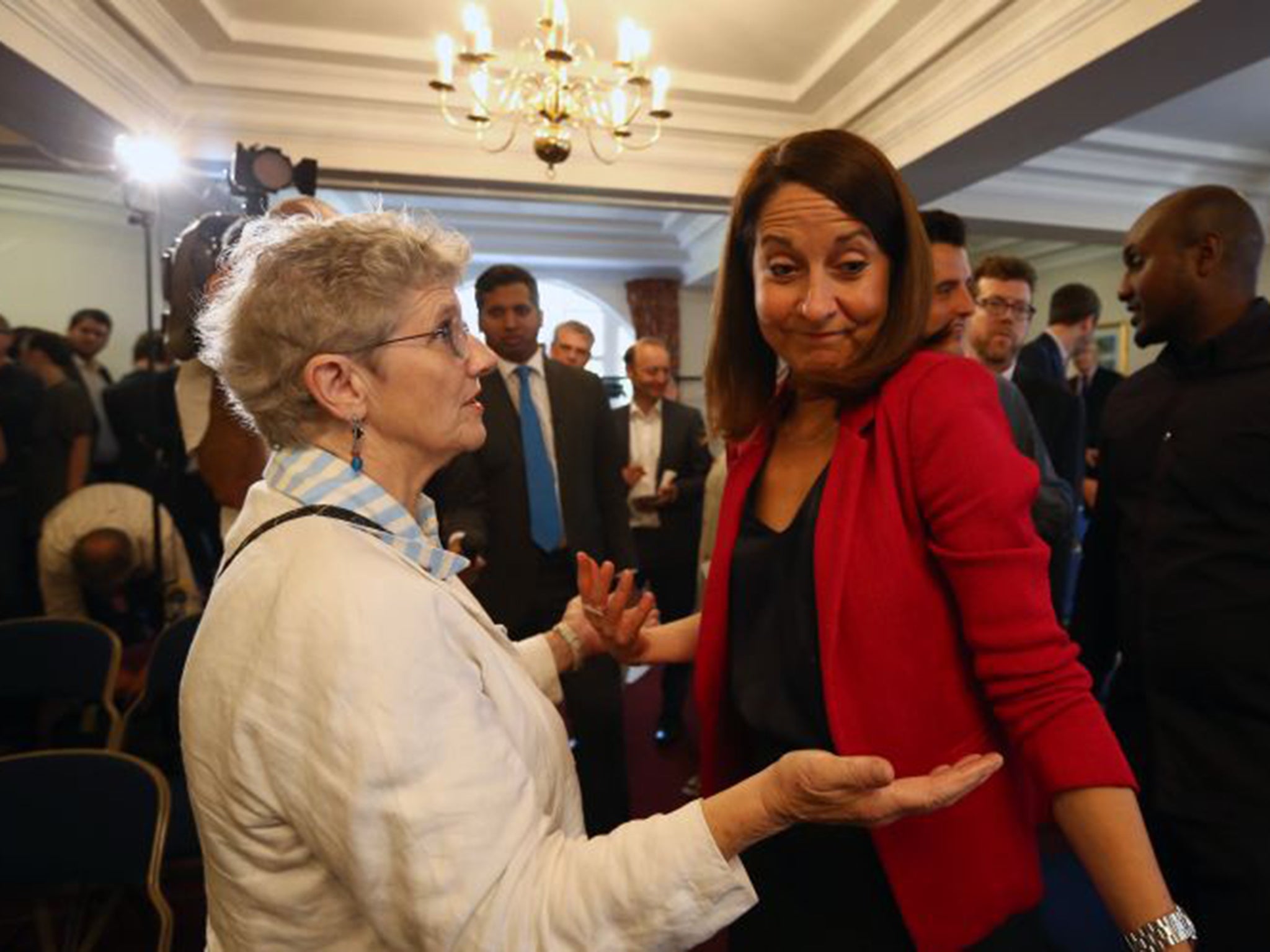Donald Macintyre's sketch: It ends in a bit of a Blur for Liz Kendall and her supporters
A campaign that began with such high hopes was not supposed to end like this

She didn’t actually say “Some of us will fight, fight, and fight again to save the party we love.” But Liz Kendall ended her leadership campaign much in the spirit of Hugh Gaitskell’s speech just before the Labour conference voted for unilateral nuclear disarmament in 1960.
Ok, this was a little different. The upstairs room at the Methodist Central hall where Kendall bowed out was hardly the cavernous smoke filled Scarborough Spa Ballroom of 55 years ago. And unlike then, this audience was wholly sympathetic, even touchy feely - among them former Blur drummer and Labour activist Dave Rowntree who gave her a warm hug after she had, with just a hint of tears in the eyes, declared in an unscripted conclusion: “Let’s move forward, and remain proud of the party and all we have done in this campaign and will do in the future.”
A campaign that had begun with such high hopes was not supposed to end like this, of course. But despite her elegiac all but admission that her campaign had faltered while Jeremy Corbyn’s had “mobilised and enthused vast numbers of people in a way we haven’t seen for decades.” and that the failure in office to “engage with our members” had opened up “too much of a split between the party in government and the party in the country” there was also a subtext that she and the neo-Blairites were not going away.
She quoted in her peroration the pledge in the reformed Clause IV which Blair had stamped his leadership with 20 years ago that “through the strength of our common endeavour we achieve more than we do alone”. And no, she repeated, she would not serve on a front bench led by a man “whose policies and politics are the same now as they were in the 1980s—and would deliver the same result.”
Finally while warning that it would be a “huge mistake” not to accept a Corbyn victory as “legitimate” and acknowledging “that people are angry with politics as usual and….the seeming impotence of politicians” she insisted: “This the challenge facing Labour and the challenge I will continue to address whatever happens on Saturday.”
The first loud clap was when she called for an end to the “Brownite-Blairite splits”. Which was odd given that the fissure in the party has now gone well beyond that. So could she by any chance have been reflecting fears of possible bloodletting by Tom Watson, the former Brownite hit man and probable new deputy leader?
While admitting the lack of “serious political debate in our movement” since the 1997 election and the need for a “new and convincing agenda that moves on from the Blair years” she lamented the absence of a “serious contest”, when Brown took over in 2007. (Actually since Brown was in the end the only candidate there wasn’t even a frivolous contest).
The other difference with Gaitskell, of course is that he was party leader when he made his defiant pledge. And the party changed its mind about the bomb a year later. After tomorrow we may be in rather more uncharted waters.
Join our commenting forum
Join thought-provoking conversations, follow other Independent readers and see their replies
Comments
Bookmark popover
Removed from bookmarks